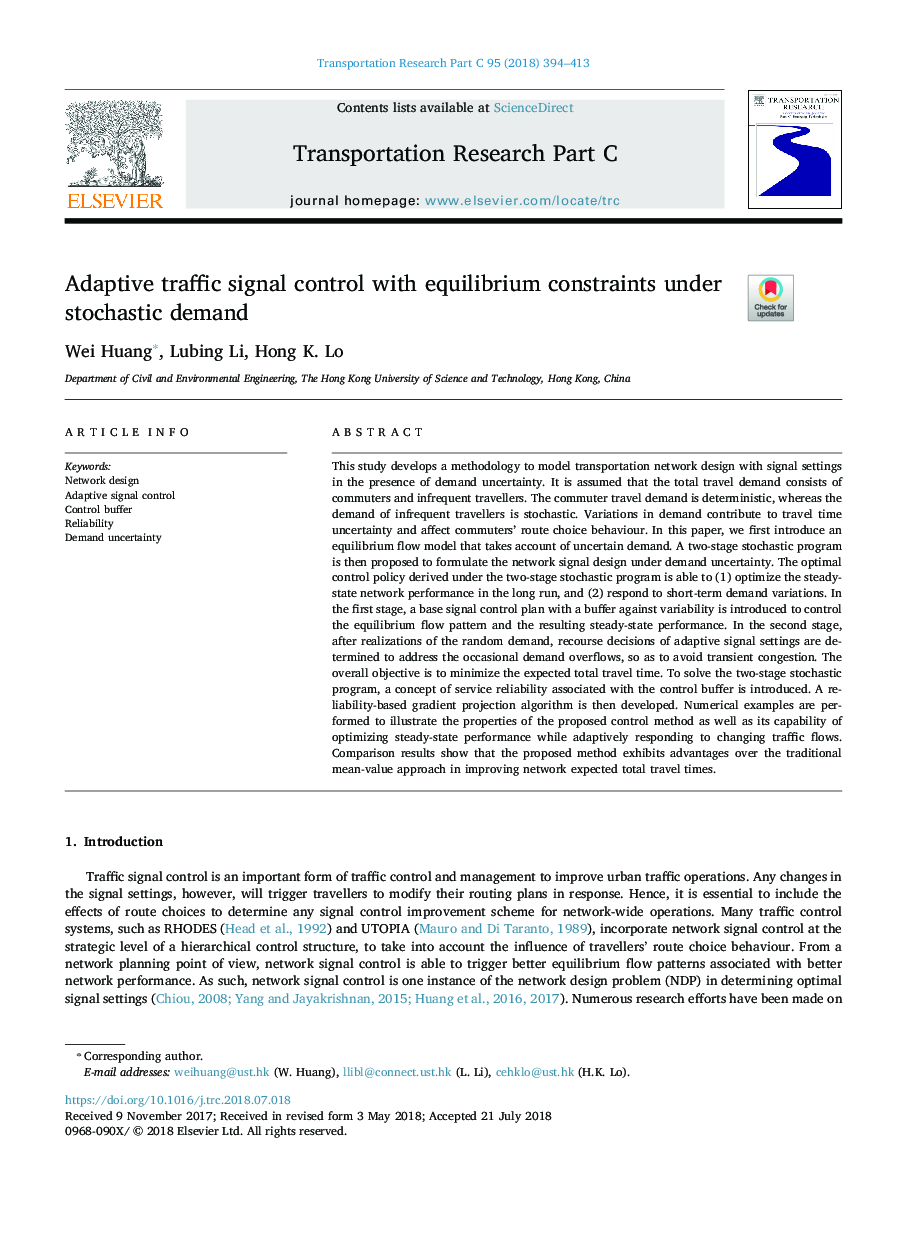| Article ID | Journal | Published Year | Pages | File Type |
|---|---|---|---|---|
| 6935690 | Transportation Research Part C: Emerging Technologies | 2018 | 20 Pages |
Abstract
This study develops a methodology to model transportation network design with signal settings in the presence of demand uncertainty. It is assumed that the total travel demand consists of commuters and infrequent travellers. The commuter travel demand is deterministic, whereas the demand of infrequent travellers is stochastic. Variations in demand contribute to travel time uncertainty and affect commuters' route choice behaviour. In this paper, we first introduce an equilibrium flow model that takes account of uncertain demand. A two-stage stochastic program is then proposed to formulate the network signal design under demand uncertainty. The optimal control policy derived under the two-stage stochastic program is able to (1) optimize the steady-state network performance in the long run, and (2) respond to short-term demand variations. In the first stage, a base signal control plan with a buffer against variability is introduced to control the equilibrium flow pattern and the resulting steady-state performance. In the second stage, after realizations of the random demand, recourse decisions of adaptive signal settings are determined to address the occasional demand overflows, so as to avoid transient congestion. The overall objective is to minimize the expected total travel time. To solve the two-stage stochastic program, a concept of service reliability associated with the control buffer is introduced. A reliability-based gradient projection algorithm is then developed. Numerical examples are performed to illustrate the properties of the proposed control method as well as its capability of optimizing steady-state performance while adaptively responding to changing traffic flows. Comparison results show that the proposed method exhibits advantages over the traditional mean-value approach in improving network expected total travel times.
Related Topics
Physical Sciences and Engineering
Computer Science
Computer Science Applications
Authors
Wei Huang, Lubing Li, Hong K. Lo,
